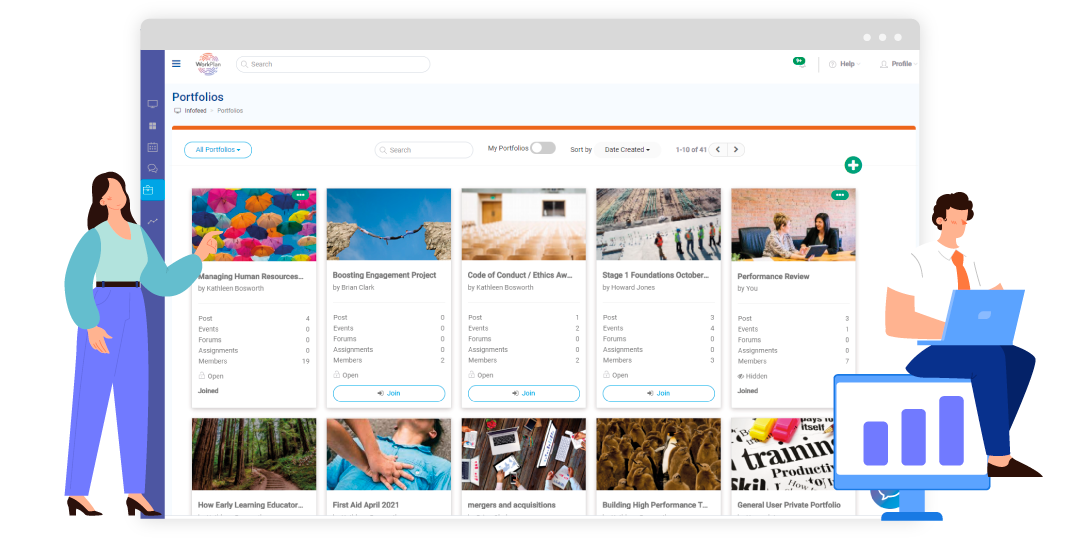For many years, the focus of HR Managers and C-Suite executives has been to develop, and promote employee engagement. However, in recent surveys, it’s been shown that even the most engaged employees still have a high rate of turnover and it’s because of something else that has come to light. Now, the discussion surrounds what is known as ‘employee enablement’ and if you don’t know what that is, you’re already behind the 8-ball. So, let’s get into it.
Engagement vs. Enablement
Before we can discuss why one is better than the other, we must first define both employee engagement and employee enablement. Engagement refers to how involved an employee is with the companies’ values and mission. And while that’s all well and good, an engaged employee may still be at risk of poor performance. That is because, even the most engaged employees will feel undervalued, stressed, even burned out, if not given the appropriate tools to complete their tasks, or if tasked with unmeaningful work.
The latter is what we refer to as how enabled an employee is, or ‘employee enablement’. When looking at enablement, we must look past the stage of being engaged with a brand, and take a more critical look into the guidance and empowerment being provided on a day to day basis.

Why Is Enablement Important?
Obviously, employee enablement has a direct influence on your turnover rate. But it’s not all doom and gloom. Instead, employee enablement should be viewed for its positive impact on revenue and other aspects of the workplace. According to Aon Hewitt, every 1% increase in employee enablement generally equates to about a 0.6% increase in sales. If that’s not a reason to invest in your employee enablement, then we don’t know what is.
What Does Employee Enablement Look Like In A Workplace?
Unlike engagement, enablement directly refers to the way in which work flows both to and from your employees. They should be able to receive the work in a way that is obvious, easy to understand and hard to misplace (which is where a collaborative software like WorkPlan Learning helps). Likewise, they should have the tools and the resources readily available to complete the work, and then be able to hand their work off to the next employee or to a supervisor in a meaningful way. Basically, your employees and your business should be able to interact, adapt and perform at the highest possible level with the materials provided.
Obviously, there will be things that are out of the usual scope or would additionally benefit your staff. For example, allowing your staff the time during work hours to complete any extra, relevant certifications for their roles. In this case, it’s best just to keep that flow of communication open and let staff know that they can approach their supervisor or manager to request such arrangements.

4 Ways To Facilitate Employee Enablement
Now that you know what employee enablement is, you’re probably wondering how you can up your enablement factor. We’ve drawn on some research conducted by Forbes to share some top tips for upping your employee enablement.
1. Hire Each Role Carefully
Employee enablement starts from day dot. Hire candidates to work in specific roles, and don’t blur the lines of those roles when they join the team. For example, if you hire an administration assistant, don’t expect them to carry out the company’s accounting duties, unless otherwise specified when hiring, or in the case that the employee actually asked to do these types of roles. That is one way to send any good staff member packing well before their time.
2. Offer Paid Training, Or An Ongoing Training Allowance
You cannot build trust and promote autonomous work without first providing a staff member with the right training to carry out their role in a way that will be perceived as successful by the company’s standards. Furthermore, you can certainly not expect an employee who has not been trained to complete something to a high standard, and that is on you as their employer – not them. Remember that.

3. Task Work That Means Something
Nobody likes to stagnate in their career, and furthermore, nobody likes to complete work that they feel is beneath their skill set. We cannot stress this enough. Giving your staff meaningless jobs is going to evoke a similar outlook to their entire role. Imagine, if you were a highly qualified accountant, and you were asked to create a budget for your bosses weekly groceries, simply because he didn’t have time and felt you were capable, you’d probably start looking for a company that needs an accountant of your level. Right? This is a big mistake, and although you as an employer might feel that you can ask an employee to do ANYTHING on their paid time, think again. You can, sure, but it’ll go hand in hand with reduced engagement and in turn, poor quality work when it really matters.
4. Talk To Your Staff Regularly
Last, but certainly not least, is actually speaking with your staff. Have regular conversations, allow them the time they need to vent and encourage them to put their hands up when they have something to say. This will not only give you the critical feedback you need to keep them engaged, enabled and empowered, but it will give them a sense of truly mattering within the organisation. Something that every employee wants to feel when they arrive at work each day.
The Takeaway?
Hopefully, by now, you have realised how important it is to not only engage your employees but to enable them in their roles too. If workflow and access to resources is something that your company stumbles on, then you’re the perfect candidate for one of our free trials or demos. With WorkPlan Learning, your staff can work autonomously, while remaining connected with their colleagues and the greater task at hand. Head over to our website to learn more.
ALSO READ: How WorkPlan Learning Helps Your Staff Have Fun at Work
Give WorkPlan Learning a Try
Give WorkPlan Learning a try, and see how it can help transform your business. Apply now for a free trial or, if you prefer to have our team show you the ropes, Request a demo.
Related Articles
Are you ready to take your business to another level?
Contact us today
Head Office
1300 726 708
+61 7 3220 2229
Melbourne Office
+61 3 9752 5651
In the spirit of reconciliation WorkPlan acknowledges the Traditional Custodians of country throughout Australia and their connections to land, sea and community. We pay our respect to their Elders past and present and extend that respect to all Aboriginal and Torres Strait Islander peoples.



